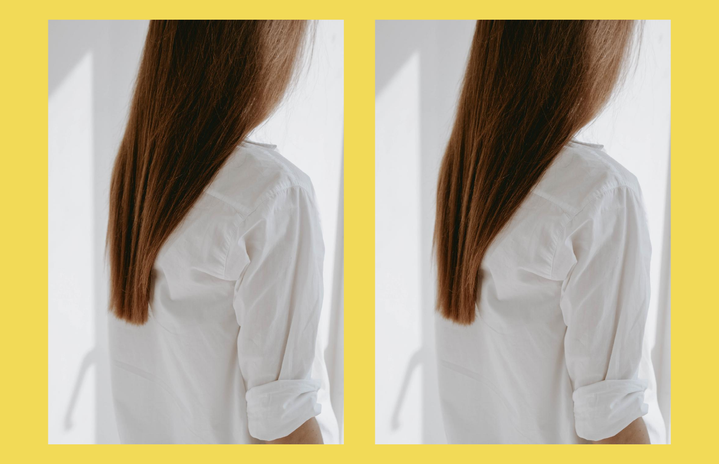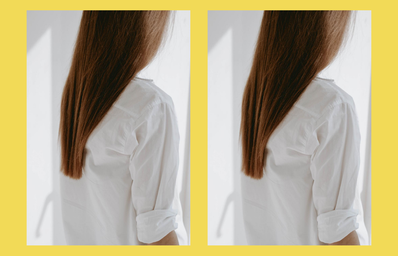I am not the first Asian woman to condemn “yellow fever,” or the self-proclaimed preference and desire of non-Asians to exclusively date people of East Asian descent. Nor will I be the last.
I am in no way referring to healthy interracial couples or those who exhibit a genuine fascination and appreciation for Asian culture, nor do I have any interest in analyzing and labelling any given real-life relationship. “Yellow fever” can manifest itself in various ways, but there is one key distinction that separates the creeps from those who are respectful: an inability to perceive Asian people as anything more than racial tropes—or simply put, the exoticized Other.
Now what makes “yellow fever” any different than, say, someone who is only attracted to blondes? If a guy sought after blonde women because he assumed they were all inherently less intelligent, he would still be basing his attraction on a stereotype. But what if he merely liked that hair color? To me, this is a pretty shallow requirement to date someone anyway, but regardless, there isn’t a cultural history of colonization and exploitation involving people on the basis of their blonde hair.
Physical traits such as hair and eye color do not affect every aspect of one’s life as profoundly as race. People are, of course, more than just their race, but that doesn’t negate the fact that their race can frame many of their daily experiences.
As to why some non-Asians chase after Asians, there are a variety of reasons that may help explain this racial fetish. How East Asians have been typically portrayed and received in mainstream media and American society is a major one to consider. Two basic stereotypes of Asian women emerged in the age of classical Hollywood cinema: the “Lotus Blossom Baby” and the “Dragon Lady.”
The “Lotus Blossom Baby” is submissive and docile. She is infantilized to seemingly no end and is utterly helpless without her, usually white, husband. This trope is present in the opera Madame Butterfly, the musical Miss Saigon, and even in some Japanese anime series. She can especially be found in adult films, hypersexualized to an extreme degree to fulfill a male fantasy. Her history is deeply rooted in the context of war and rape when U.S. soldiers sought Asian “comfort women” after World War II and through the Korean and Vietnam Wars.
The “Dragon Lady” on the other hand, is treacherous and domineering. She is always up to no good and she can’t be trusted for a second. She will use her sexual prowess to seduce men to further her malicious agenda. She is likely highly skilled in martial arts as well. This trope is present in Charlie’s Angels (2000) and in Kill Bill (2003), with both films featuring Asian actress Lucy Liu. The “Dragon Lady” embodies “yellow peril” and derives joy from the destruction of a male-dominated, Western world. In her reality, this is the only way she can prosper.
These tropes are antiquated and thankfully, aren’t as prevalent today as Asian media representation in Hollywood expands and Asian characters are given more depth and individuality. Nevertheless, remnants of these tropes remain and still, subconsciously or not, affect how non-Asians view Asian women in real life. If your only exposure and impression of Asian women come from the media you consume, the “Lotus Blossom Baby” and the “Dragon Lady” are distinctly enticing and foreign.
Asian men aren’t free from fetishism either. Gay Asian men are fetishized because Asian men, as a whole, are perceived as less “manly” and passive. At the same time, some people may deem Asian men as undesirable altogether for the exact same reasons.
The rising popularity of K-pop and Korean culture in the West has also contributed to Asian fetishism. Some obsessive non-Korean fans, or stans, will go so far as to denounce their own culture to identify as Korean. These fans are called Koreaboos. There’s nothing wrong with admiring your favorite Korean idols; it’s something else entirely when you try to find a Korean guy just so you can have someone to call “oppa.”
In terms of how Asians are generally received in American society, you may have heard of the phrase “model minority.” The “model minority” descriptor assumes Asian Americans are universally smart, hard-working, law-abiding, and overall, an unassuming group of people. They appear to achieve a higher degree of socioeconomic status than everyone else. This is not a fact, but rather a societal expectation placed upon Asians and used as a racial wedge against other minorities of color. Non-Asians who yearn for Asian partners may believe that their future mixed child will inherit these admirable characteristics and associations.
The overly strict tiger mom is a trope that exemplifies the model minority myth. Above all else, she prioritizes the success and reputation of her family, which again, may be seen as attractive to some non-Asian people.
Those who dismiss the “yellow fever” phenomenon often argue that dating is a two-way street. What about the Asian women who prefer and purposely seek out white men? Do they have “white fever”? In the online documentary series, They’re All So Beautiful, Asian women were interviewed and asked to reveal what features set white men apart. Some said white men were usually richer, more powerful, and more confident. This case is an example of hypergamy, or the practice of marrying someone of a superior sociological background. Throughout history, this was a means of survival. We are told this about white men through depictions in the media and well, everywhere else. I don’t mean to suggest that every white man is richer, more powerful, and more confident than the average person, but there is absolutely no denying that America is overwhelmingly run by white men. They run our government, our industries, and our institutions. Some Asian women see marrying white men as their opportunity to climb up the social ladder. I want to clarify that marrying someone solely on the basis of their race is still something I frown upon. However, so-called “white fever” does not hold a candle to “yellow fever” due to the power imbalance Asian women internally accept when they choose to only date white men. White men who outwardly flaunt the fact that they have Asian wives (when no one asked), or brag how irresistible they are in Asian countries are parading their unspoken power.
Then there are the non-Asians that assure their sole attraction toward Asians is strictly physical and doesn’t, in fact, entail all these racial implications. A non-Asian can cite physical traits commonly shared among Asian people such as dark hair and monolids as reasons for why they admire them. But the thing is, Asians aren’t homogenous. Not all Asians have dark hair or monolids. Sure, many of them might, but I really wonder if one’s attraction to an entire race can truly be this simplistic and is not instead, used as an excuse to avoid confronting underlying racial biases and presumptions. You may be drawn to someone’s individual traits, but what is the need to generalize an entire race to classify a set of physical traits as attractive?
Asian fetishism not only hurts Asian people, but also promotes inaccurate, offensive beliefs about other races. Those that fetishize Asian women do so at the expense of other women. If you seek Asian women because you believe them to be more submissive, this implies other races of women are “too loud” and empowered. It is not hard to find online forums of white supremacists and incels alike praising Asian women for their perceived obedience and proximity to whiteness. Not too long ago, I found out about this book on Amazon titled How to be Irresistible to White Men: Interracial Dating Secrets of Asian Women Black Women Who Swirl Should Know. This title speaks for itself; I hope I don’t have to explain why this is so disturbing.
I am proud to be an Asian woman, and yet, I reconcile with not wanting to let my racial identity define me. I am hyper aware that I can inadvertently attract the wrong kind of attention by simply existing. In light of COVID-19, I’m a threat, a virus. But before that, I was a doll waiting to be conquered. The moment I am perceived as such through the eyes of someone else, I am nothing more than an Asian—subject to whatever qualities they want to attach onto me afterward.


